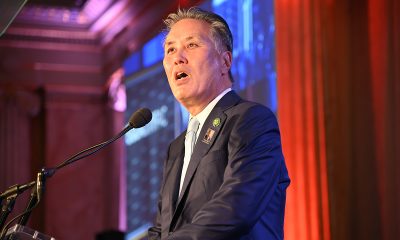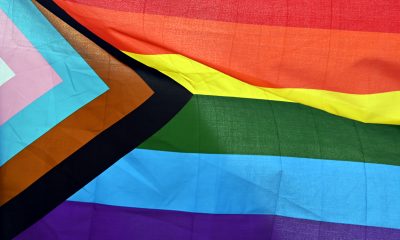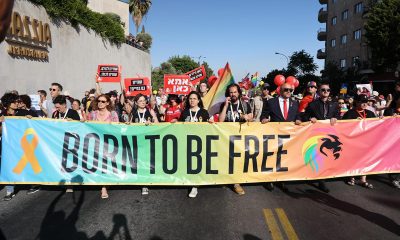Africa
Ugandan MP introduces anti-gay surrogacy bill
Sarah Opendi’s measure mirrors attempt in Kenya

Uganda has joined Kenya in seeking to ban same-sex couples who want to use a surrogate or in vitro fertilization to become parents.
MP Sarah Opendi on March 5 introduced the Human Assisted Reproductive Technology Bill 2023, which would limit access to these treatments to only people with infertility challenges. She notes there has been an increase in the number of Ugandans seeking to have children through human assisted reproductive technology over the years, but without a legal framework.
“The increasing demand for the use of human assisted reproductive technology has been necessitated by the growing cases of primary and secondary infertility, and other health-related challenges among persons seeking to have children,” Opendi states in the bill.
Legal gaps the law seeks to address include regulating access to the use of human assisted reproductive technology by a state’s medical body; designating medical units or facilities as fertility centers; setting up sperm, oocyte (a female egg) and embryo banks within fertility centers and a register of data collected from services rendered through the technology.
The bill’s Clause 20 would block gay couples from having children via surrogacy and would give a registered medical practitioner the power to establish the infertility condition of an individual before accessing services.
The medical professional would have to certify that the intending parent “suffers primary or secondary infertility” or “suffers health challenges which affect the ability to reproduce.”
The bill would also bar same-sex couples from surrogacy services for parenthood, stating they apply to “a man and a woman” who jointly seek to use human assisted reproductive technology to obtain a child. The proposal would also apply to a man and a woman where “either the man or woman or both” suffer primary or secondary infertility or health-related challenges that affect the man or woman’s ability to reproduce.
The proposed law, which a parliamentary health committee is considering for public input before its reintroduction in the House for debate, has been criticized by some Ugandan LGBTQ activists as “draconian.”
“The same sponsors of the anti-gay law are the same introducing this bill which is well influenced by American anti-gay and anti-gender groups,” Frank Mugisha told the Washington Blade.
His comments came three days after the U.S. denied Opendi a visa that would have allowed her to attend a Commission on the Status of Women at the U.N. meeting in New York.
Reports indicate the visa denial is because of anti-LGBTQ comments that include the castration of gay men that she made during the parliamentary debate on the Anti-Homosexuality Act. Mugisha applauded the U.S. decision, saying she should not be able to promote hate against LGBTQ people “anywhere else.”
“The bill is very draconian, has so many limitations for our men and families that do not conform to old draconian conservative ideologies,” said Mugisha in response to the surrogacy bill. “The bill would outlaw women who are not married from having IVF and we need to pay attention to this bull and stop it.”
The Ugandan surrogacy bill limiting same-sex couples from parenthood adds to a list of recent anti-LGBTQ measures like Anti-Homosexuality Act that saw the country sanctioned.
The Court of Appeal on March 12 declared it is illegal for LGBTQ rights groups to register in Uganda. Parliament Speaker Anita Among, a strong anti-homosexuality crusader, during the parliamentary session two days after the ruling commended Chief Justice Alfonse Owiny and the Ugandan judiciary he leads for saving the country from “values that are alien and want to destroy our society.”
Kenya’s proposed surrogacy law, dubbed the Assisted Reproductive Technology Bill 2022, is also before the parliamentary health committee. MP Millie Odhiambo last May reintroduced the bill, which would prohibit gay and lesbian couples from having children via surrogate.
The measure stalled in the Kenyan Senate in 2022. House rules rendered it “dead” when the parliamentary term ended because of that year’s general election. It could only be saved through a reintroduction in the new Parliament.
The Kenyan surrogacy bill, just like the one that Opendi introduced, would only permit a man and a woman (intending parents) with certified infertility problems to have children via surrogate and IVF.
Africa
Lesbian South African MP named to country’s new Cabinet
Steve Letsike won a seat in the National Assembly on May 29
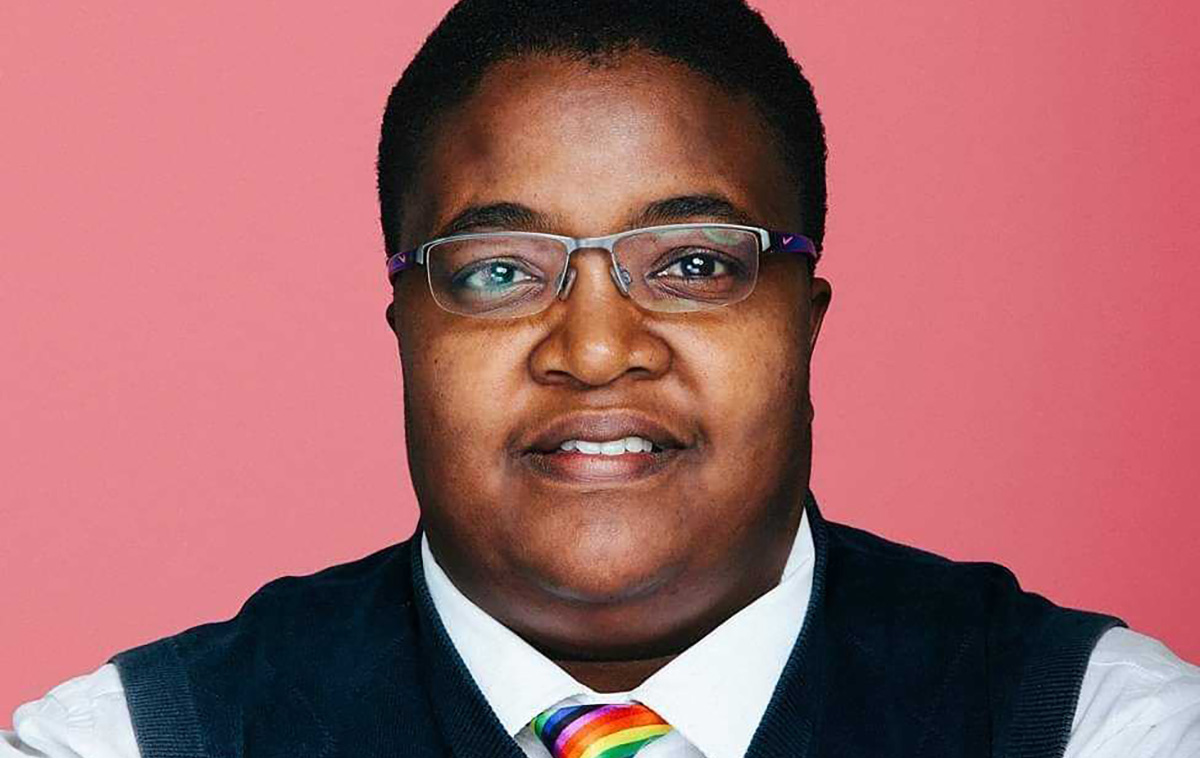
South African President Cyril Ramaphosa on Sunday appointed lesbian MP Steve Letsike to his Cabinet.
Letsike, founder of Access Chapter 2, a South African advocacy group who is a member of the African National Congress that Ramaphosa leads, will be the country’s deputy minister of women, youth, and people with disabilities.
Letsike won a seat in the South African National Assembly in national and provincial elections that took place on May 29.
The ANC lost its parliamentary majority that it had had since Nelson Mandela in 1994 won the South African presidency in the country’s first post-apartheid elections. Ramaphosa on Sunday announced Letsike and other new Cabinet members after the ANC and nine other parties agreed to form a National Unity Government.
The Washington Blade has reached out to Letsike for comment.
Africa
Congolese justice minister orders prosecutor general to arrest LGBTQ allies
Constant Mutamba issued directive on June 15, implementation unclear
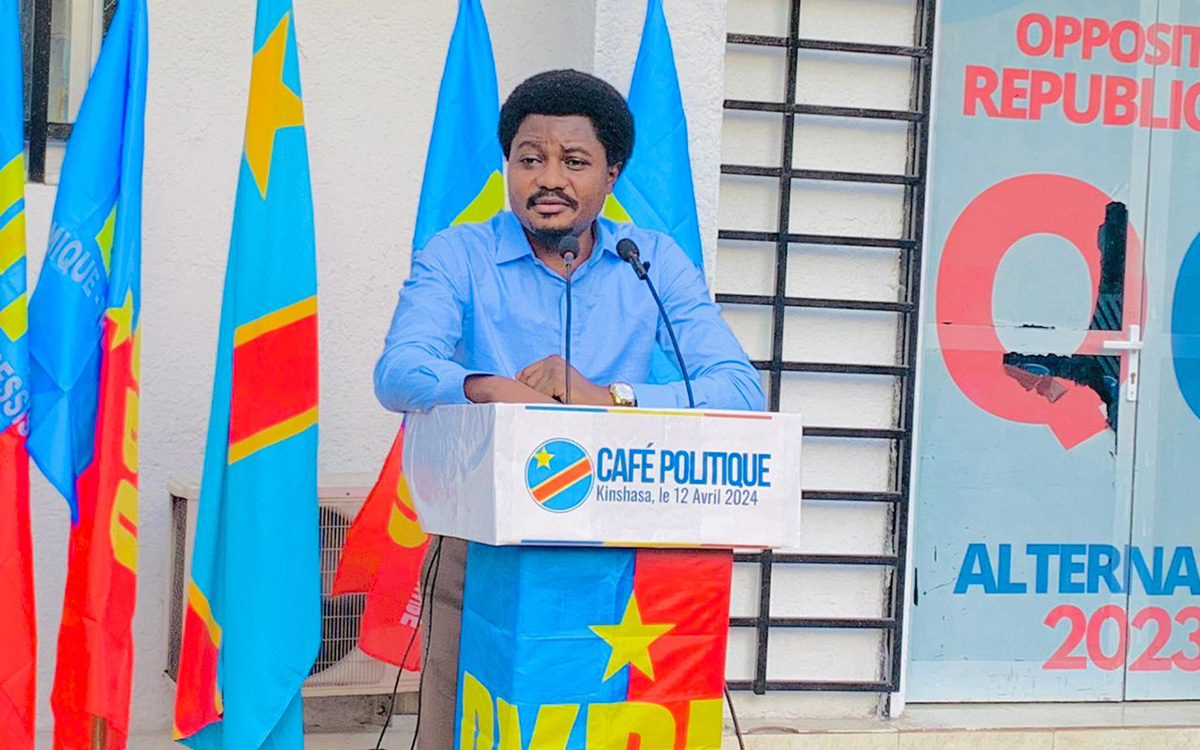
Congolese Justice Minister Constant Mutamba has instructed his country’s prosecutor general to arrest LGBTQ allies.
The newly appointed justice minister in a June 15 communique said the prosecutor general should initiate legal proceedings against people who advocate for the LGBTQ community in Congo.
Although same-sex marriages are constitutionally prohibited, there is currently no law that criminalizes consensual same-sex sexual relations. The communique has raised a lot of eyebrows from social and LGBTQ activists who are asking on what grounds Mutamba issued the communique.
“He could have started by initiating a bill in this direction, but in the current Congolese legislation he is missing the point,” said Jean Claude Katende, a Congolese human rights activist who is the president of the African Association of Human Rights. “If he wants to repress homosexuals, he must initiate a law which must make this behavior an offense and have it punished. He will be arrested for complicity in arbitrary arrests. The constitution is clear, no one can be prosecuted for an act which does not constitute an offense.”
Khelver Hermano, a Congolese social commentator, said the law should not be interpreted based on one person’s emotions.
“LGBT marriage is already not applied in the DRC but the minister wants to incarcerate those who do it informally without a legal basis,” said Hermano. “The law is not interpreted according to our will.”
“Does the penal code in the DRC recognize polygamy? Why don’t we arrest all these known polygamists?” asked Hermano. “Just as polygamists are not prosecuted, we cannot do so against LGBT people.”
Many Congolese people, however, have welcomed the communique, arguing same-sex relations are un-African and unorthodox.
Article 172 of the country’s penal code states a person “who commits a moral crime by exciting, facilitating or promoting to satisfy the passions of others, debauchery or the corruption of persons of either sex under or apparently under the age of 21 years shall be punishable by a prison term of three months to five years or a fine.” Article 176 says a person “who engages in activities against public decency shall be punishable by a prison term of eight days to three years and/or a fine.”
Although not entirely applicable, the prosecutor general can use these two penal code articles to initiate the arrests — the country in recent years has seen some arrests of LGBTQ people.
The June 15 communique is not the first time Mutamba has come out against the LGBTQ community.
Mutamba earlier this year introduced a bill that would criminalize acts of homosexuality. The proposal received widespread support, particularly on social media where many Congolese people described it as a turning point for the country and for the continent at large.
Although parliament has not formally debated the bill, activists are concerned it will pass without many major objections because most MPs have previously said they do not support the LGBTQ community. It remains unclear how the prosecutor general will executive Mutamba’s communique.
Africa
Prominent South African activist elected to country’s parliament
Steve Letsike founded Access Chapter 2

A prominent South African LGBTQ activist has won a seat in the country’s parliament.
Steve Letsike, a lesbian woman who founded Access Chapter 2, a South African advocacy group, is a member of the African National Congress. She is also part of the ANC’s National Executive Committee that determines the party’s direction.
Letsike won a seat in the South African National Assembly in national and provincial elections that took place on May 29.
The ANC lost its parliamentary majority that it had had since Nelson Mandela in 1994 won the South African presidency in the country’s first post-apartheid elections. MPs earlier this month re-elected President Cyril Ramaphosa after the ANC invited the Democratic Alliance and other parties to form a Government of National Unity.
Letsike in a statement to the Washington Blade described her election as “a milestone for the people of South Africa, and also affirmative of our party’s posture that is inclusive and intention to transformation agenda.”
“I am not in parliament for myself but the people that trusted the ANC to send individuals that will put people first,” said Letsike. “In that cohort that includes the LGBTI people like myself. Rooted in the teaching of a just society, that seeks equality and believes in the rule of law. That demand on developmental agenda from a queer lens and clear priorities of the people is important.”
“I am delighted by this task, trust and hope for our people,” she added.
-

 Canada1 day ago
Canada1 day agoToronto Pride parade cancelled after pro-Palestinian protesters disrupt it
-

 Theater4 days ago
Theater4 days agoStephen Mark Lukas makes sublime turn in ‘Funny Girl’
-

 Baltimore3 days ago
Baltimore3 days agoDespite record crowds, Baltimore Pride’s LGBTQ critics say organizers dropped the ball
-

 Sports4 days ago
Sports4 days agoHaters troll official Olympics Instagram for celebrating gay athlete and boyfriend

